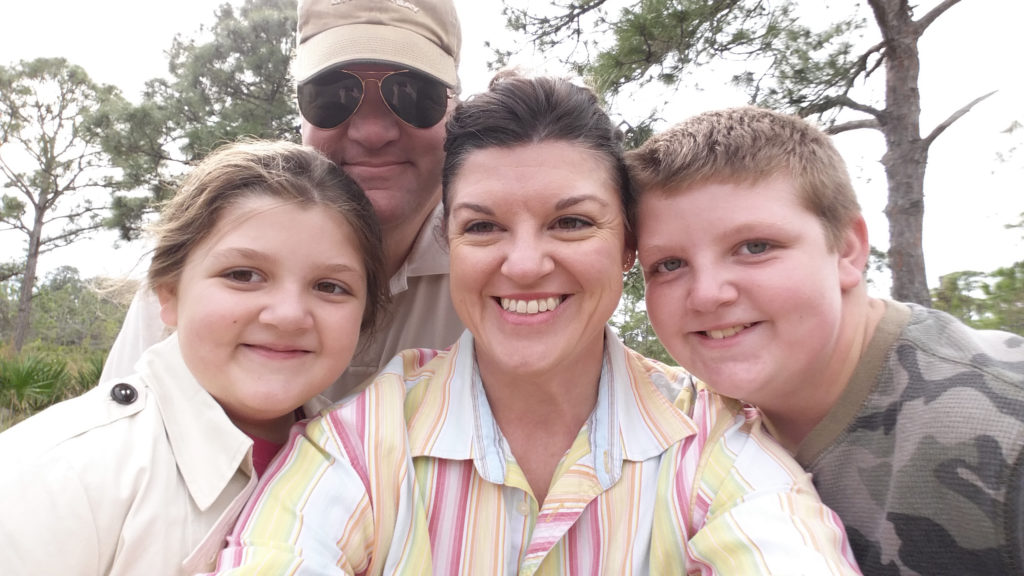
good living
When we left evangelical faith, Charles and I no longer had a definition for “good living.” At least, we thought we didn’t.
Because evangelical faith is all-consuming, isn’t it? There are rules and expectations for how you speak, parent, work, relax…it is a complete lifestyle in the truest sense of that word.
Our questioning faith journey led us to re-think all of those areas of living and more in an effort to newly define “good living.”
The Good Living section here on the blog is about how our experience of life changed. We cover how our consumption of products changed – and keeps changing! – in the “Consuming with Care” section. Here, though, we share with you our experiences.
parenting
Our parenting has become less about “We are your God-given authority, you shall obey without question, immediately,” and much more about, “We know more than you because we’ve been here longer and we treasure your presence in our lives, so let us come alongside you and help you grow into rationally-thinking, independent humans.”
The kiddos noticed this shift, Firstborn moreso than Secondborn. He has told me several times how different we are than some of his friends’ evangelical parents. “You guys explain stuff to us and you listen to what we think,” Firstborn told me. “Like, you really care about what we have to say. I mean, you don’t always do what we want, but you at least listen and teach us why that may not be the best choice.”
He’s right, we do those things. And that is a definite switch from being an evangelical parent, isn’t it? Bible-based parenting starts from the, “Honor your father and mother so that your days may be long on the earth,” point of view. (Exodus 20:12) Its focus is on authority, domination, and exacting obedience.
I’m not saying it’s unimportant for a child to obey – especially a very young child who is ignorant of danger and needs to respond immediately when told to not run out in the street.
But, as our children and their friends get older, we see how that evangelical parenting mindset plays out in adolescence and young adulthood. It sets up a constant power struggle, arguing, ugliness, fights, stress – nothing we want in our household and pretty much everything I experienced as an adolescent, too.
There are times when I run up against blatant ignorance/immaturity (Firstborn is 14, Secondborn is 10) and have to say the dreaded phrases, “You’ll have to trust me on this one. Trust my knowledge and experience to guide you well here. It’ll make more sense when you’re older. Remember that I always want the absolute best for you and that’s why I’m saying this. I am for you.”
Those times, though, are rare. More often in my post-evangelical parenting I find myself taking the time to sit down, have a true conversation, listen, learn, and then offer up whatever wisdom or experience I have to help guide my child toward a good decision or better behavior next time.
Unlike in my evangelical parenting days, I do not abdicate the reason for my requirements to act justly, love mercy, and be kind. I don’t say we have to be that way because of the Bible or God. My children know that I expect those things because they result in a good human who treats others and self well. It results in a good life and that is what I wish for them: to live a good life.
(Also, I have no qualms now about letting them read books filled with dragons and lore – imagination is given free reign here and, wow, is it powerful!
relaxing
When I began dating my stodgy old Lutheran, Charles, I ran smack into a cultural shocker. His family observes cocktail hour!
I’m not kidding. This is a serious thing in the daily Seitz household. Sometime betewen 5pm and 6pm, everyone stops their work and comes together in the living room. A cocktail is poured (my father-in-love liked a Manhattan, mother-in-love prefers vodka on the rocks, Hubs varies his drink, and I – being a good Southern girl – always go with bourbon), “nibbles” are placed in a crystal or painted bowl, and everyone settles into a comfy chair or couch. They discuss what they’ve done that day. They share thoughts about world events. If a particularly vexing problem or situation has happened, it’s brought up for comment and input from others.
In the beginning, though I had already shied away from the evangelical requirement to abstain from alcohol, I was completely unaccustomed to such regular consumption of it. If you’re early in your post-evangelical life, you may still feel that way, too. I inwardly balked each time, believing we were probably sinning and upsetting God but reminding myself that these were Lutherans (not Southern Baptists) and Peter’s vision meant we could eat and drink what others eat and drink when we’re with them. (Acts 10)
Now, lest you think this section belongs in our “Consuming with Care” section, consider why cocktail hour is observed in the Seitz house.
They’re relaxing.
Relating.
Living.
Cocktail hour is about good living.
I’ve spent literally thousands of afternoons now as a Seitz woman enjoying cocktail hour. I love the ritual it provides – from pouring, mixing and stirring to presenting a drink with a fun cocktail napkin underneath to having an official activity that marks the close of our studious work efforts that day. I love the gentle break. It’s like passing through the foyer of a home. You get the time to slough off what came before, acknowledge and consider it, then focus your mind toward what lies ahead.
This is just one example of how my relaxing has shifted on this questioning faith journey.

Relating and Friending
If you are just starting out in a post-evangelical life, one of the recurring feelings you’ll likely experience is awareness. Suddenly, your language doesn’t work. “Called to do that,” is evangelical speak. “Led by the spirit,” “Told by God,” “Knew God led me to,” “God allowed that to happen so that…”
It’s all evangelical lexicon. (Also, you can now say things besides God are “awesome.”)
This tripped me up a lot in the first few months. Had you asked me before my questioning faith journey if I spoke “Christian-ese” I would have scoffed and said absolutely not.
Then I stepped out of evangelical faith and heard myself speaking.
Yowza.
So how do we speak with each other now? How do we relate to each other? Well, we own our choices and activities instead of ascribing them to God for fault or glory. (Actually, have you noticed that God is never held accountable if things don’t work out well but He’s given all the glory if they do work out well? Hmm. I wrote a little about it here.)
Instead of, “I feel called to make a difference in the world by…” we say, “I believe I can be of good in the world by…” Instead of, “God allowed that to happen to so that…” we say, “Isn’t it interesting how, if that hadn’t happened, we wouldn’t have experienced this?”
Basically, it’s getting our eyes off the clouds and putting them here, on earth. It’s turning our focus toward what is actually, day-to-day happening instead of always keeping a piece of our eyes, ears, heart, and mind turned away and focused on God/Heaven.
We also don’t have to worry about every relationship being an opportunity to “lead someone to Jesus” or “be a witness.” Until I stopped doing this, I didn’t realize how manipulative it is. Evangelical Christians adjust their presence in someone’s life according to their perception of that person’s faith walk. Now that I’m out of that mindset, it seems so dysfunctional. When you’re in it, though, you tell yourself it’s because you love the other person and want them to come into a “right relationship” with God.
My relationships with others have become much more authentic and true since leaving that evangelical mentality behind. People are worthy purely because they are people – whether they’re on a questioning faith journey, trying to learn what is true, already believe they know what is true, love Jesus, don’t love Jesus – they’re worthy and worth my time and attention purely because they exist. There’s no inner calculation of how much “witness” is needed in every interaction.
Relating becomes authentic when we step out of evangelical chains and into good living.
Vacation, Traveling and Holidaying
I’ve written about the Southern Baptist boycott of Disney during my childhood. That, of course, meant we couldn’t vacation to Disney as a family. But evangelical living dictated all sorts of “allowed” and “not allowed” considerations for vacationing and traveling. You probably have those kinds of stories, too.
So what is our vacationing life like now that we are focused on post-evangelical good living?
This (like my clothing) is an area that we are still walking out. We took a giant first step by having our family vacation this year be a trip to the Wild Goose Festival in North Carolina. I would never have considered such a thing as a Southern Baptist. This is an event for “progressive Christians” – people who do not hold fast to believing that every word of the Bible is 100% true, perfect, infallible, etc. They embrace environmentalism. Coming alongside immigrants. Standing up for the oppressed even when – especially when – the oppressed is a person of color. Embracing and loving LGBTQIA+ people. Being warm and welcoming to the foreigner, the outcast, the other.
This is not a Southern Baptist type of event.
It is not an evangelical event.
But it IS a loving event with teachers and attendees who profess to love Jesus.
So, we went. We met and heard from others on a post-evangelical journey. We’ll be writing more on that later and some are coming onto the podcast.
In addition to vacationing, our holiday celebrations are different. My “Happy Birthday Jesus” napkins went in the trash last year. I let the kids track Santa’s progress on NORAD. (Santa, contrary to evangelical positioning, is not evil and takes nothing away from Jesus.) They had a blast!
As they were in the midst of watching his progress, I called my mother to see how things were going at her house. Now, before I tell you her reaction to Santa now being a part of our celebration, I should share some background. Christmas Eve usually finds us at my parents’ house, eating “Happy Birthday Jesus” cake and wiping our mouths with “Happy Birthday Jesus” napkins and being reminded that “Jesus is the Reason for the Season.”
Acknowledgement that this date was picked because it coincided with the Winter Solstice/Yule and the Festival of Saturnalia is definitely not allowed. We attend Vespers service at her and Daddy’s church, which is a candlelight service. We come back to their house and each person takes a piece of the nativity set. My dad settles into his recliner and reads the Christmas story from Luke. When our piece of the nativity is mentioned, we place it back in the nativity scene. (It’s always interesting that some of the nativity pieces aren’t mentioned in the Luke account, so we ad lib those.)
Santa was absolutely, unequivocally verboten in our house.
My mother told us before kindergarten that Santa didn’t exist. When other parents learned of this, their surprise was met with her defense. “If they grow up and realize I lied to them about Santa, they may wonder if I lied to them about Jesus, too.”
My older sister got in heaps of trouble when she told our cousin Kasey (we were all in elementary school at the time) that Santa didn’t exist. My aunt did not have the same qualms with jolly St. Nick as my mother and was livid that her daughter’s enjoyment of the Santa experience had been ruined.
Ah, the experiences of evangelical life.
So, when I called my mother to tell her Merry Christmas, she asked how the kids were and what they were doing since we weren’t at her house. They were bouncing around the living room, doing math out loud trying to figure out when Santa Claus would arrive in our neck of the woods and how much time that left to get cookies made and get themselves safely to sleep. I laughed and shared this with Mom. In the ensuing silence, my sister, in the background, asked my mother something about when I got so off track that I was now allowing Santa and wasn’t my son too old for Santa anyway?
Honey, I’m over 40 and never experienced Santa. I’m enjoying it and I know he doesn’t really come down chimneys. It’s probably to be expected that my children – who have friends who do still believe in Santa – would go all in on something I’ve never allowed to be spoken of in our home before and that all of their friends have enjoyed and discussed every single year.
So, yeah, our holidays are a bit different in our post-evangelical journey. We’re thinking we may start going on a trip every Christmas. We’ll see – and we’ll no doubt talk about it here on Freevangelic!
Good Living
At the end of the day, we have found that learning to live a good life, be free, revel in authenticity, and live out the truth we find looks much different than it did when we were evangelical.
It probably does – or will – for you as well, right? Has your approach to friendships changed? To holidays? To traveling and vacationing? To relaxing and relating?
Tell us about it!
And if you have questions about a particular area of good living or something for us to consider, let us hear it. Get in touch by using one of the options below.
Recent Related Posts

The Process of Leaving Evangelical Christianity
It’s been over five years since that morning at my kitchen table when I closed the Bible and pushed it away. Three years since announcing here that I had left evangelical Christianity and was embarking on a Truth quest. And in that time I’ve given dozens of media interviews, recorded lots of episodes of the Freevangelic Podcast with Hubs, and shared countless texts, calls, emails, and cafe meetings with people…
Keep Reading

What’s Happening in Evangelicalism – And Beyond
It’s Been a Minute… I haven’t posted in a long while, violating all the standards and rules for building a brand. That’s okay. Freevangelic isn’t a business or a brand. It’s an honest journey of being. I’m not here to post for algorithm’s sake. When I arrive at something that feels worthy to share, I know the time has come to type. That time is now. how this awareness came…
Keep Reading

Breaking Free of Purpose-Driven Shackles
“God made you for a purpose,” my mama assured me. “A big purpose. He has something special just for you to do.” Just like that, the purpose-driven shackles clicked over my wrists. I know my mama meant well. She loves Jesus like nobody’s business – more than anything or anyone else alive or dead. Her highest life aim is to please Jesus, to “lay up treasures in heaven” purely so…
Keep Reading